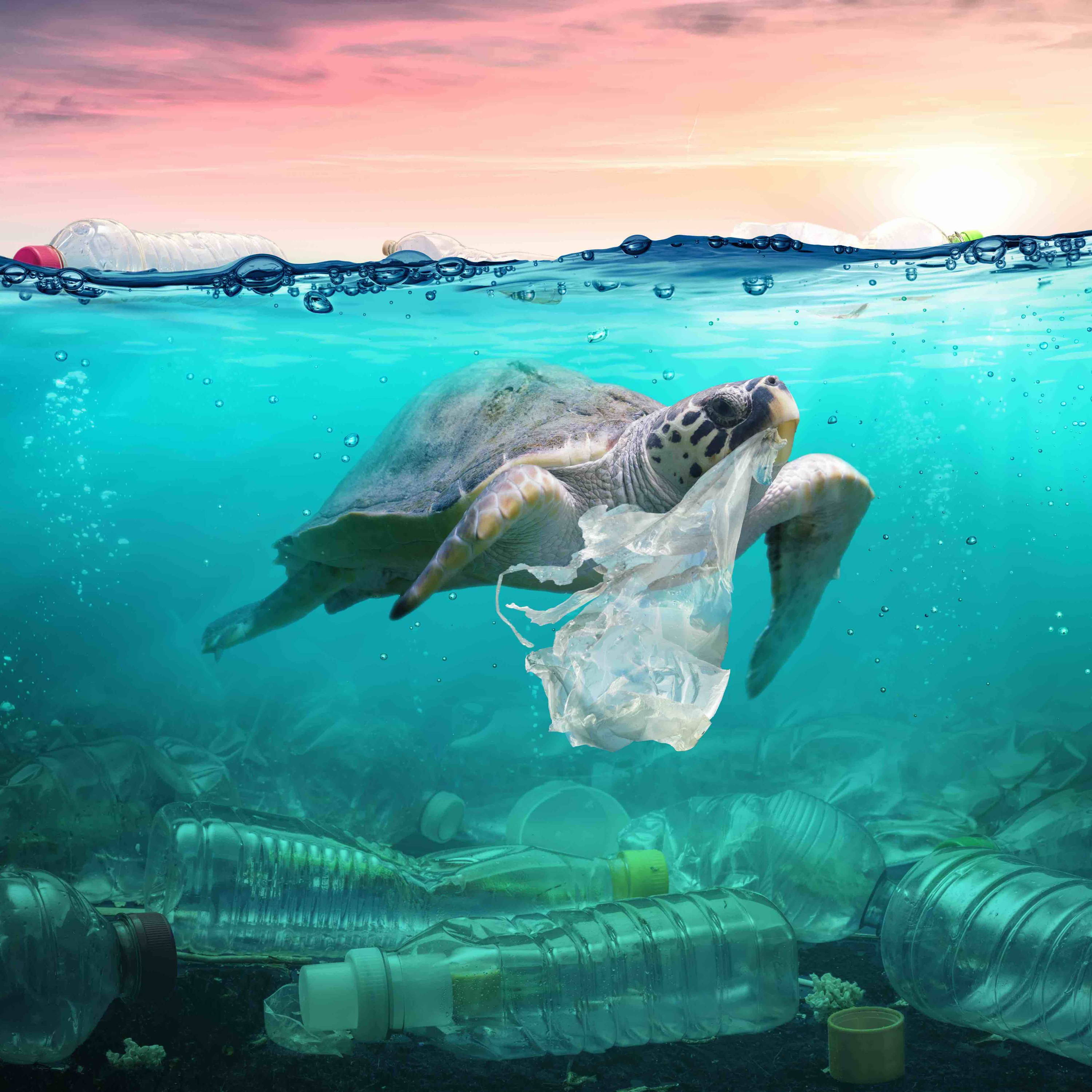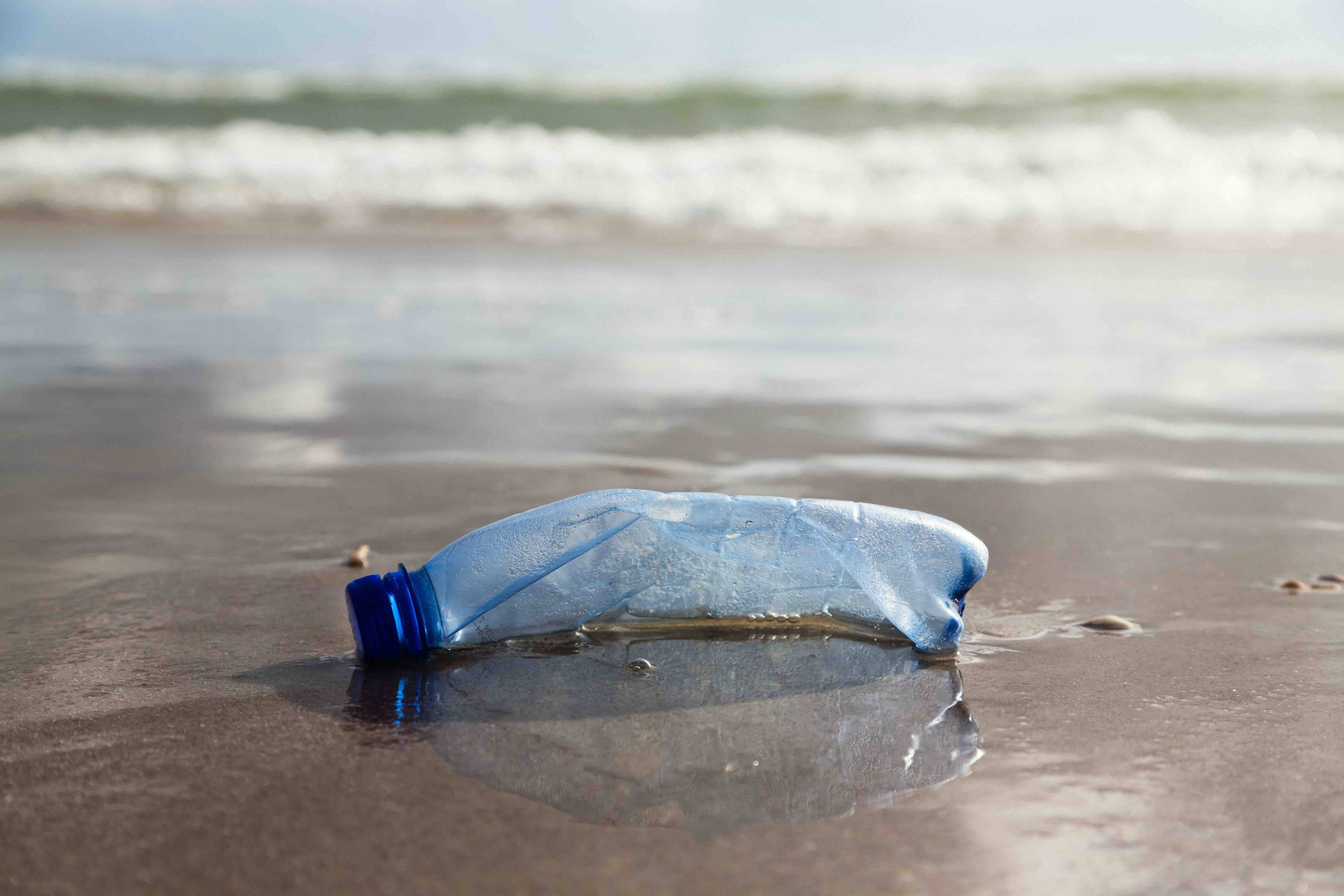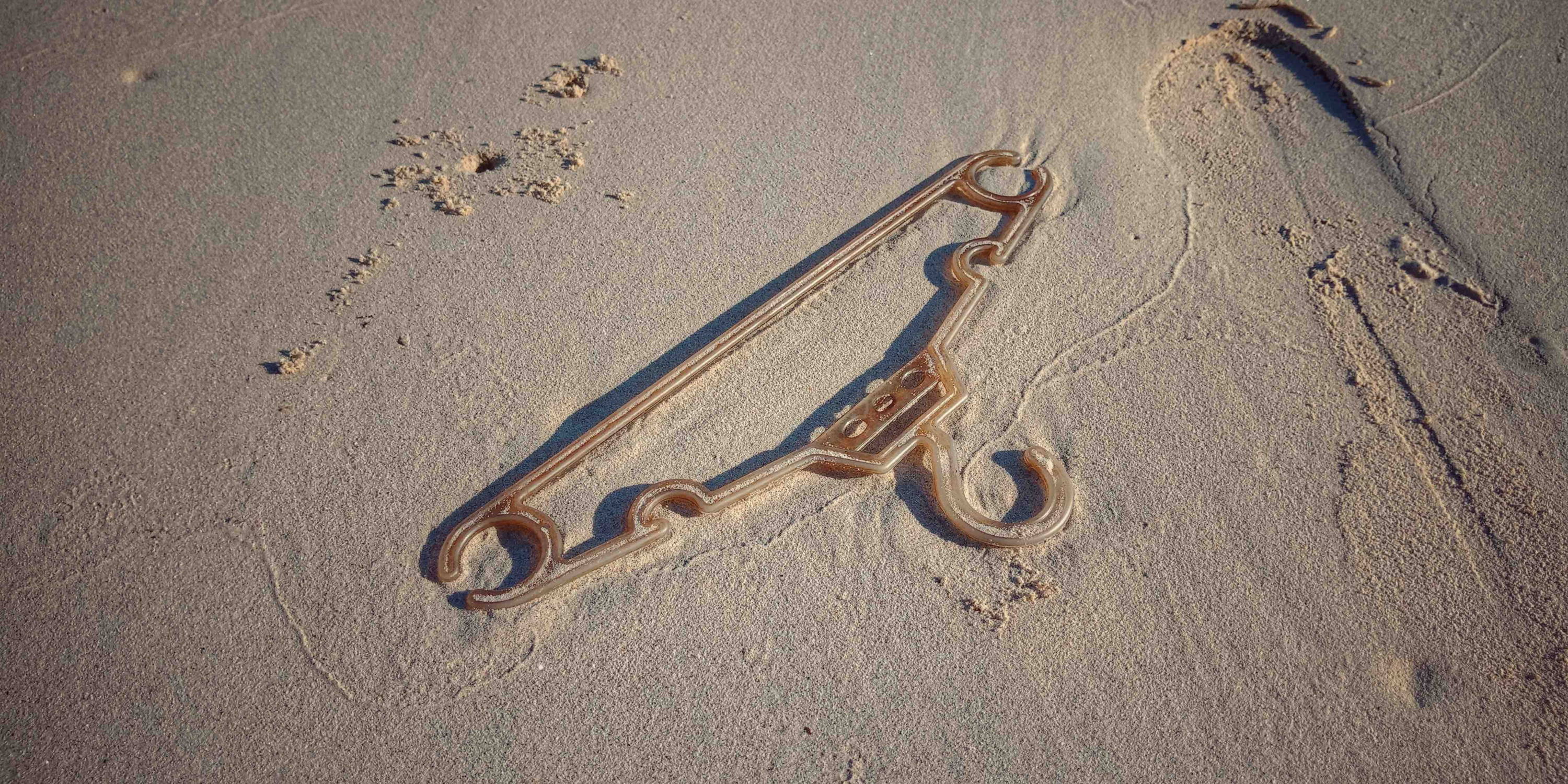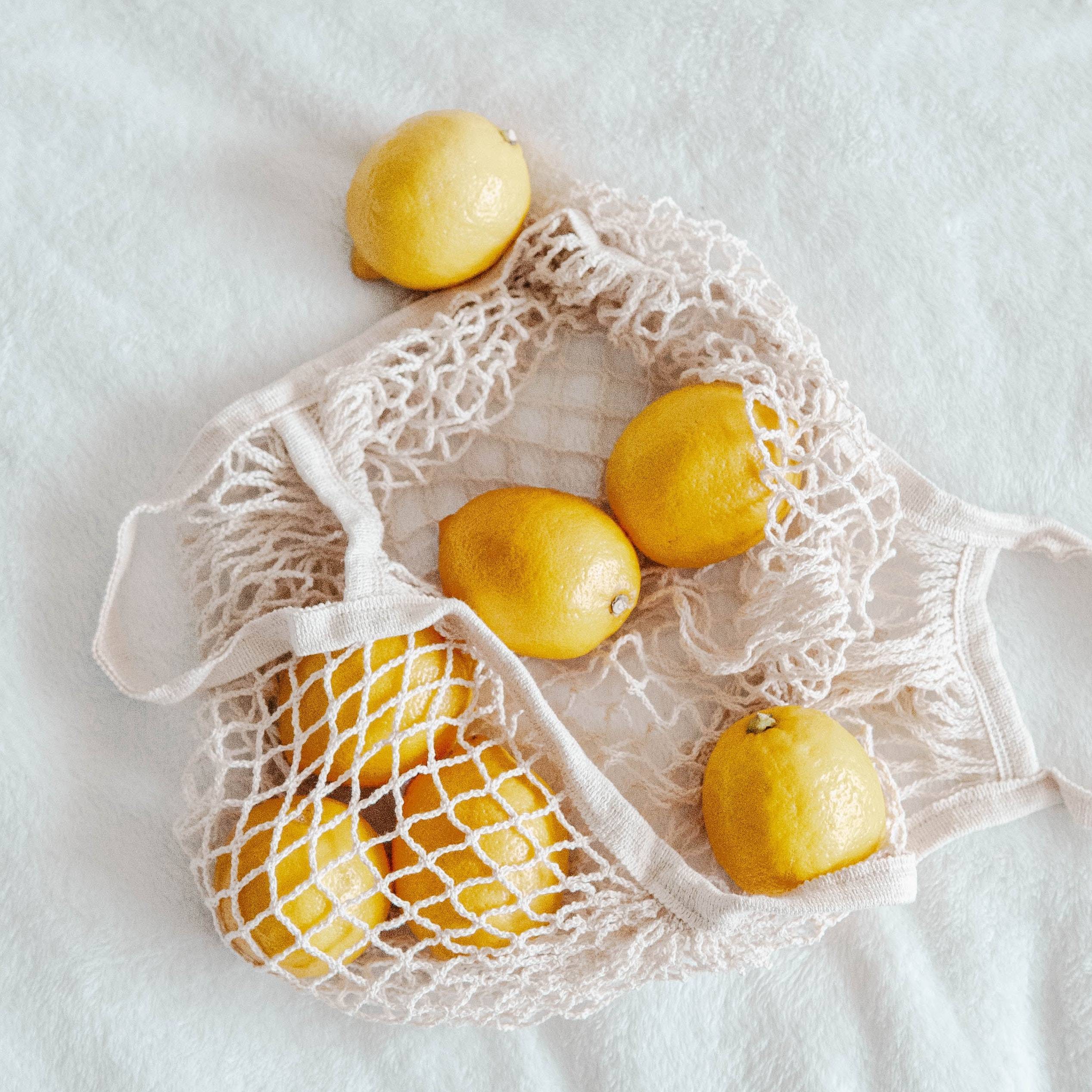
image: Shutterstock
Goal 14: Life Below Water
CLEVER PLASTIC-FREE SOLUTIONS TO FUTURE-PROOF THE PLANET
To mark Plastic Free July, we explore important and easy ways to cut plastic pollution and save our seas
By emma elms
2 july 2021
Today, we produce over 300 million tonnes of plastic waste every year. That equates to the weight of nearly the entire human population! Even worse, nearly half of that is single-use plastic and a whopping 91% of the world’s plastic still isn’t recycled. Instead, it ends up in landfill, being burnt, littering our countryside or polluting our oceans. But some countries are ahead of others in the fight against plastic pollution. Here for Plastic Free July we champion the solutions – both national and local – we’d love to see more of.
1. Ban single-use plastics – everywhere!
Drumroll please: 3rd July 2021 is a big day for Europe’s war on plastic. The EU Directive on ‘the reduction of the impact of certain plastic products on the environment’ finally comes into force, which aims to promote a circular economy. It means a long list of single-use plastic products will now be banned including cutlery/chopsticks, plates, straws, cotton buds, drink stirrers, certain polystyrene food containers and products made from oxo-degradable plastic.
New Zealand has also just announced a ban on a raft of plastics by 2025, enhancing its ‘clean, green reputation’ according to environment minister David Parker. Now we need the rest of the world to follow suit. Worryingly, COVID has in fact reversed progress in some countries, with several pressing pause on their anti-plastic initiatives. For instance, last year several US states, including California, temporarily banned reusable grocery bags, reinstating single-use bags over unfounded fears about the virus spreading on surfaces – shocking considering California banned single-use bags back in 2014 and was once a green leader. Environmental groups have also reported huge quantities of ‘covid waste’ with plastic gloves, hand sanitiser bottles and surgical masks littering our shores.

2. Charge a bottle deposit worldwide
Germany was the first big European country to adopt a bottle deposit scheme, where customers pay a 25% deposit on every bottle of soft or alcoholic drink. Return rates are now approximately 98% in Germany, following the scheme which launched back in 2003. Now around 10 European countries are implementing deposit refund schemes, in order to meet the new Green Deal requirements. Glass bottles are also part of the programme in Germany which shoppers pay an average deposit of 7-13% for. Once collected, bottles are returned to manufacturers to be cleaned and refilled. Win-win.
3. Make the switch to reusable period products and stick to it
The average person who menstruates uses over 11,000 disposable period products in their lifetime, according to the Women’s Environmental Network. And our beautiful seaside is paying the price. For every kilometre of beach in the UK, you’ll find an estimated nine plastic applicators and 23 sanitary pads, which have made their way there through being flushed down the toilet or via landfill. But there are now more plastic-free period solutions than ever before, from washable period pants (check out our reviews) to silicone cups such as the original Mooncup. It launched ahead of its time back in 2002 and in the five-year stretch until 2019 reported a gigantic 98% rise in sales. The cup isn’t for everyone and can be tricky to master, but as for period pants – what could be easier?
4. Turn your home into a recycling palace
At the supermarket opt for refillables, wherever you can. From store cupboard essentials to beauty products and cleaning supplies, refillable options are becoming easier to find. See our nifty supermarket tips here or buy from specialist packaging-free stores – check out this useful UK-wide list from The Zero Waster. Your bathroom is another potential plastic danger zone. Switch from liquid soap to bar soap and check out this brilliant company, Who Gives A Crap which sells bulk-buy 100% recycled loo roll wrapped in paper not plastic and donates half of all profits to building new toilets. So far, they’ve given away £4.5 million to help provide proper sanitation for the two billion people in need. Find out how #TOGETHERBAND’s Leanne Waltstow went about making her bathroom plastic-free.
5. If you’re going to use plastic make it recycled Ocean Plastic®️
For every foot of coastline around the world, there’s the equivalent of five grocery bags of plastic waste, endangering wildlife and releasing harmful microplastics into our seas. One innovative company Parley has found a brilliant way to tackle the issue, so we were thrilled to partner with them for some genius recycling. Every #TOGETHERBAND rope is made from 100% Parley Ocean Plastic®️, created from plastic waste intercepted by Parley from remote islands, shorelines, waters and coastal communities. Now we’d like to see more accessories and clothing on the high street made from upcycled plastic, benefiting both people and planet. There’s no denying plastic can be a brilliantly durable and easy-to-clean material – for instance, in the medical world, but we’d like to see recycled plastic used more widely, across multiple industries.
100% of profits from the sales of #TOGETHER products go to charities that advance the Sustainable Development Goals. Find out more here.
6. Have weekly beach cleans worldwide
Be inspired by Spain’s Clean Beach Initiative in Barcelona, which has weekly beach clean-ups open to the public every Saturday morning. Under COVID guidelines, you need to confirm your place beforehand, but why can’t every beach, from Bali to Bognor, have a weekly clean-up operation? Henri Brocklebank, Director for Conservation at Sussex Wildlife Trust, says, ‘Blue Planet has shown us the wonders of the oceans, but what people are not doing is bringing that back home. We should get as excited about our local coast as we do when we go on holiday and see crystal blue waters. Local people have to protect their own beaches.’
7. Reuse plastic hangers
Did you know just one plastic hanger takes up to 1000 years to break down in landfill? Every year 15 billion clothes hangers are used by the clothes industry worldwide. Plastic is often used as it’s durable, easily produced and cheaper than the alternatives, but it’s a plastic pollution nightmare, as some hangers are only used for three months before they’re binned – or given away to customers. Now one company Braiform, a leading British hanger-maker, is tackling the issue, prioritising reuse over hanger production, working with major brands and retailers on hanger reuse in over 30 different countries. Braiform sorts and cleans over 425,000 hangers a day at its HQ, dividing them into different types so they can be reused or recycled. Now we’d like to see swimsuit and underwear ordered online sent out without those tiny (and useless!) little plastic hangers that usually go straight in the bin. Small steps can make a big difference.

8. Make washable nappies the norm
A small country in the South Pacific, Vanuatu, wants to make history by becoming the first country in the world to ban plastic disposable nappies. In the UK, an estimated three billion nappies are thrown away every year, accounting for 2-3% of all household waste, according to Wrap, the recycling charity. It takes around 500 years for a nappy to decompose, so the majority end up in landfill or incinerated. The main alternatives are washable cloth nappies (or biodegradable nappies), but many parents are deterred by the extra laundry labour involved. Given the fact a baby could use 4000-6000 disposable nappies before it’s potty-trained – but only 20-30 reusable nappies by contrast – it’s an issue that can’t be ignored.
Vanuatu, which has a population of around 300,000 spread across 65 islands, already boasts one of the toughest single-use plastic bans in the world, but the proposal to ban disposable nappies has had mixed reactions from parents. ‘Vanuatu is safeguarding its future,’ explained Mike Masauvakalo of the Ministry of Foreign Affairs. ‘Eventually, plastics find their way into the water and the food chain and at the end of the day, the people of Vanuatu end up consuming [them].’
One pioneering charity Mamma’s Laef, based in Vanuatu, who’ve already been busy sewing reusable menstrual pads for years, have now produced washable nappies, providing work opportunities for vulnerable women and helping protect our oceans at the same time.
All images: Shutterstock


